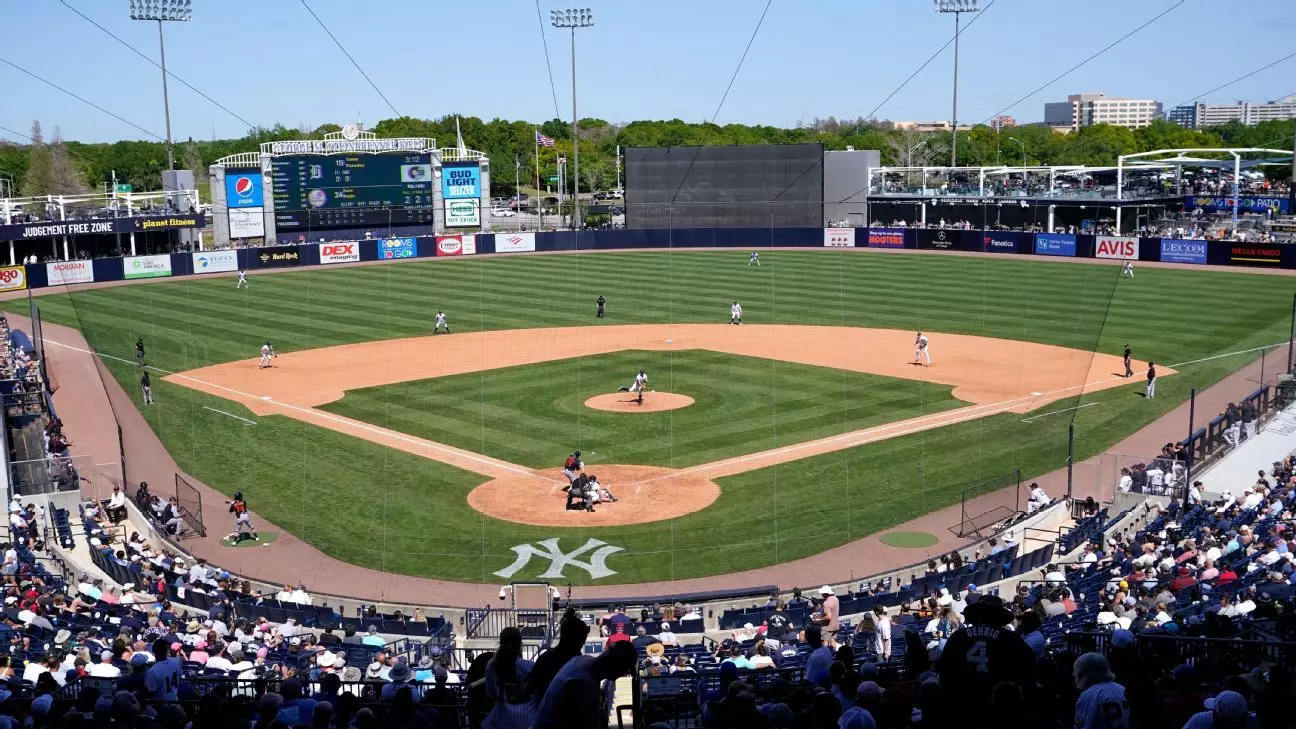As Major League Baseball (MLB) navigates the unpredictability of weather and venue changes, the Tampa Bay Rays find themselves in a unique and challenging situation. With significant damage to Tropicana Field caused by Hurricane Milton, the team has temporarily relocated to Steinbrenner Field. This adjustment not only affects their home base but also leads to a strategic reconfiguration of their early-season schedule to optimize gameplay and reduce rain-related interruptions.
In response to the potential for summer storms, MLB has revised series matchups, shifting a pair involving the Rays to the earlier months of the season. The decision to host 19 of their first 22 games at home underscores a deliberate effort to capitalize on milder weather conditions in Tampa during April and May. Notably, the Rays will face the Los Angeles Angels at home on April 8-10 instead of the previously scheduled date in California. This proactive scheduling not only aims to secure favorable playing conditions but also intends to engage local fans during the first part of the season.
However, the Rays’ early scheduling advantage comes at a cost—during the latter part of the season, they will embark on a hefty road trip. Out of the final 108 games, 64 will be played away from home. This includes challenging stretches, such as a 12-game road trip that covers multiple states and venues including Oakland and San Francisco. For teams like the Rays, deeper road excursions can affect team morale, disrupt routines, and complicate fan engagement.
The strategy to switch games is supported by historical weather data, which indicate a pattern of increased rainfall during the summer months in Tampa. An average monthly rainfall of 7.37 inches in June, peaking at 9.03 inches in August, raises concerns about postponed games. The Rays’ logistical adjustments not only factor in rainfall forecasts but also the implications of diminished attendance caused by inclement weather.
The ongoing struggle of the Rays showcases the resilience of a club that has called Tropicana Field home since its inception in 1998. With a return to their original venue not anticipated until 2026, the team’s management is committed to maintaining competitive play while engaging with a fanbase that has remained loyal amidst adversity. The decision to host games at Steinbrenner Field serves both practical and symbolic purposes—reinforcing community ties and offering fans an opportunity to witness their team in action.
As the Tampa Bay Rays commence the 2023 season, their ability to adapt to unforeseen circumstances will be a defining characteristic of their campaign. With robust early-game scheduling and the resilience to overcome logistical hurdles, they hope to leverage local support at Steinbrenner Field. As fans eagerly await the new schedule, the focus will be on a season that reflects both sporting excellence and an unwavering commitment to the community, ensuring that the spirit of baseball thrives even in challenging times.


Leave a Reply